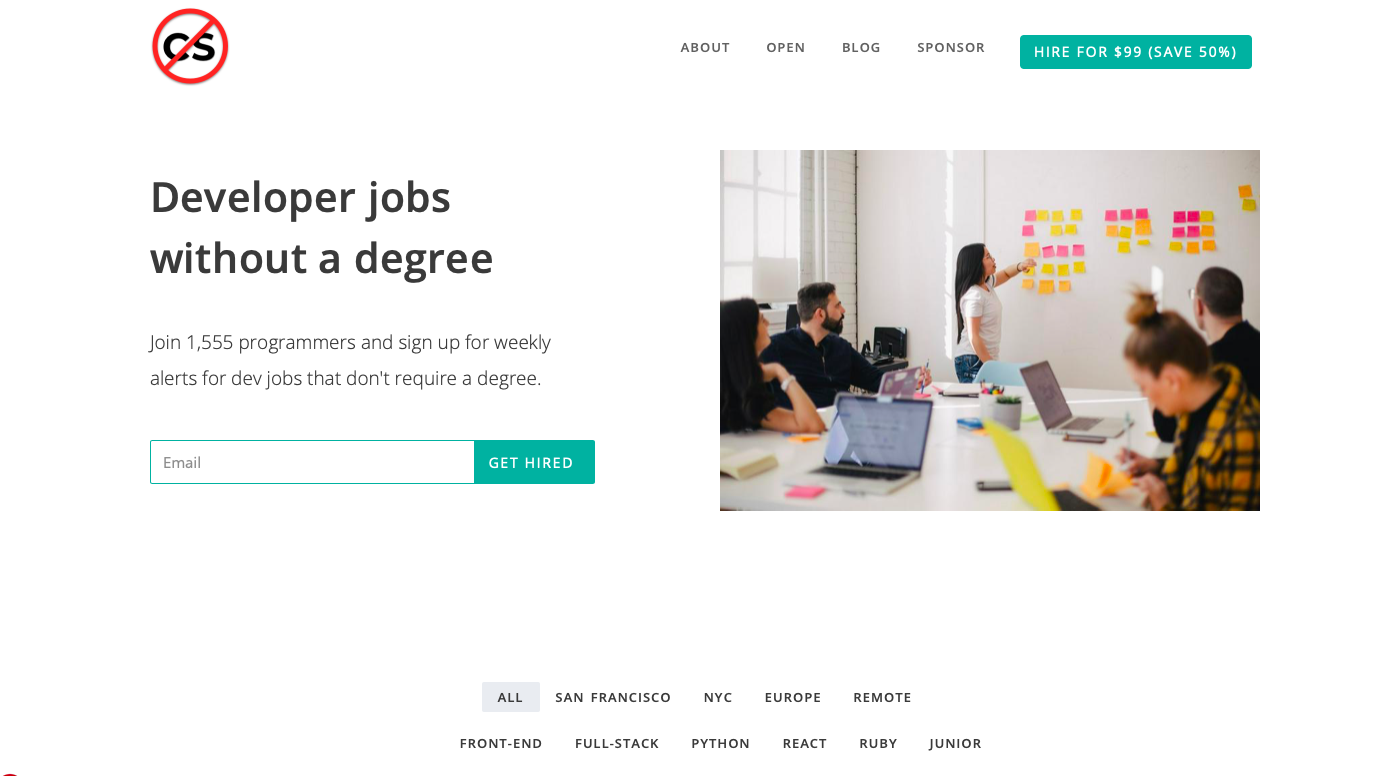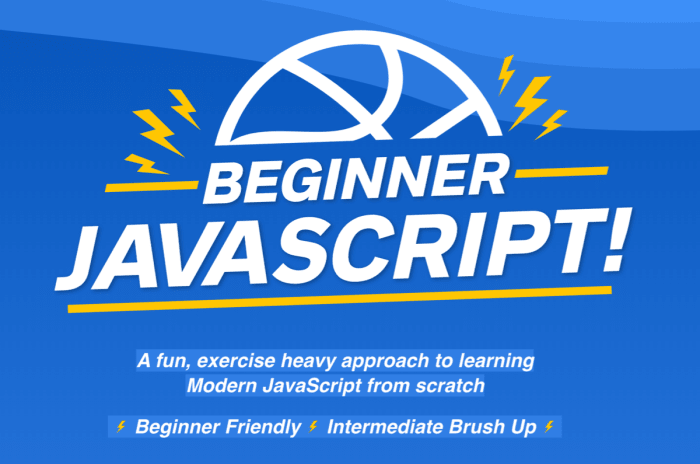Peter Elbaum wrote to me to tell me about he had changed career from teaching Spanish to Web Development. He was actually able to triple his salary in the process and gets to work remotely as well! In this exclusive interview Peter talks about how learned to code, how his lifestyle has changed since then and his tips for beginners.
Hey, so can you give us a short introduction for people who want to know more about you?
Hey there! I’m Peter, and I’m a Software Engineer living in Raleigh, North Carolina with my wife and dog. I graduated with a Spanish degree in 2014 and now work remotely for a wonderful agency called Praxent.
Outside of work, I enjoy hacking on side projects and learning new skills in general. My main side project right now is my YouTube channel - I make a mix of screencasts, developer vlogs and videos about soft skills. Other than that, I enjoy running, tennis and trying new restaurants with my wife.
How has your life changed since going from a Spanish teacher to becoming a professional programmer?
It’s been a stark difference. First, the financial: in those jobs I averaged about $17K a year, and my first developer job salary was $62K. But, in my opinion the money doesn’t matter if you don’t enjoy the work itself. More importantly, I’ve found that programming is a wonderful mix of creative and analytical, and it’s happened to be a great fit for me. Mostly I’m glad to be done with the anxiety of not having a real career path.
In addition, I’ve found that I notice business ideas and opportunities for automation more easily now. Before I learned to code, I didn’t really understand how apps or websites worked. Now, I can at least guess at the basic architecture of most apps and websites that I use. Not to be cliche, but it’s opened up a world of possibilities.
How did you get into coding?
The thought of writing code wasn’t even close to being on my radar for most of my life. I never considered myself to be naturally gifted at science and math, and gravitated more towards the humanities. When I first arrived at university, I had plans to be a linguistics professor but ended up studying the humanities more broadly. After graduation, I taught high school Spanish for a year and then worked with foster children for a year.
During that second year, I was barely able to pay my rent. While the work was noble, it was also draining and discouraging. I was starting to feel anxious about the fact that I was almost two years out of school and still didn’t have what I considered a real career path - I had fallen into all of my jobs at that point. In addition, I was thinking of getting married and was uncomfortable with the idea of doing so while not making much money or having a plan.
My aunt works in the tech industry and had mentioned bootcamps to me about a year prior. It so happened that the city I was living in was the headquarters of a bootcamp called The Iron Yard, which before it closed was one of the biggest bootcamps in the country. I did a ton of research into them - went to demo days, called past graduates, researched online - and started learning on my own with freeCodeCamp and some books. After a few months, I decided this path seemed like a good fit and decided to apply.
What was your experience at the Iron Yard bootcamp like?
It was good and extremely hard at the same time. In terms of delivering, for me it met or even exceeded what it sold itself to be. I got my first two full-time jobs through connections at The Iron Yard, and I felt I mostly had the skills to perform as a junior developer by the end of the program.
The downside was mostly personal in that I dealt with a ton of anxiety during the course. I was fortunate in that I didn’t have to take a private loan to do the program, but I’d taken a loan from my parents, and I felt immense pressure to complete the program successfully and get a job so that I’d be able to repay the loan. I couldn’t lean on any of my prior skillset and felt completely like a fish out of water.
In addition, several people were pushed out of the program for falling behind or because they didn’t complete the final project, so I felt the specter of failure always looming. As a result, I didn’t lean into learning as much as I could and instead was focused only on passing each assignment. Looking back, I wish I’d been able to stop worrying and focus more on learning. This experience has helped color how I approach learning now.
How did you get your first programming job?
I had an internship during the project phase of the course with a local startup. Essentially, I used their API in my project and was building something that they could incorporate into their product. I also had some contract work with a medical data startup, but neither of these places seemed like places I wanted to be long-term. Both of these opportunities came through The Iron Yard.
My first full-time job also came through The Iron Yard. I saw the director of the Raleigh campus post on Slack that she had some contacts in the municipal government that were looking for a developer. I applied, ended up getting the job, and have lived here ever since!
What advice do you have for people who want to learn to code?
Build real projects, don’t just follow boilerplate tutorials or online courses. I never used to enjoy doing side projects because it always felt like an obligation to have them for a portfolio. However, it wasn’t until I realized that I could create things that I wanted to exist in the world that hacking on side projects became really fun. So, find a real world problem you can solve and tackle it, even if it’s just a script to start. Begin to automate your life. Seeing the real-world value of code has been extraordinarily rewarding for me and has been a great motivation to push through blockers.
One recent example of this from my life is that I was able to save my wife a few working hours each week with code. Because we both work from home, I noticed that she was often updating her company’s website with the data from a spreadsheet - she was writing the same HTML snippet repeatedly and filling in values that corresponded with each line of a database-generated report. This is a perfect task to offload to some code, so I wrote a Node.js script that takes in a CSV of the spreadsheet and gives back an HTML file with all of the markup. All she has to do now is copy-paste the file into her site editor.
Problems like these exist in abundance in most office environments. Building a few of these automations gives the dual benefit of making your life easier and getting you the skills you need to be an engineer. Even if you don’t aspire to write code professionally, this skill can be a force multiplier for your efficiency.
Can you tell us what an average day looks like for you just now at Praxent?
I’m really fortunate to work from home and that Praxent gives us a tremendous amount of freedom and flexibility. Since that’s the case, I usually get up around 6:30AM and am working by 7:30AM. The typical day is mostly doing feature work for projects, but it also typically involves pairing with a colleague, figuring out architecture, and of course standup and other scrum rituals. I love working for an agency because of the variety of work, and because the nature of services businesses tends to reward flexibility, fast learning and soft skills. Currently, it’s hard to imagine a better work fit for myself.
I typically end my workday after 4PM and have gotten in the habit of doing a workout straight after. The evenings I spend with my family. Before going to sleep I’ll usually also work on YouTube, draft a blog post, or write some code for a side project.
Prepare for technical interviews with Algo Expert- "NOCS" gets you 15% off.
Have you ever had imposter syndrome and if so, how have you dealt with it?
Absolutely. I think it’s near-universal, but I had it really badly for the first couple years of my career. I fell into a vicious cycle of not trusting my own ability to figure things out and relying too heavily on more senior colleagues to help me with things I didn’t understand. The problem with this approach is that I wasn’t developing self-reliance and problem-solving skills, so the impostor syndrome never got better.
It wasn’t until I started at my current job that impostor syndrome became less of a daily reality. The reason for this was that I was the only front-end developer on my first project, so it was up to me to make all of the architecture decisions and also write all of the code. It was pretty scary to have so much responsibility after having just joined, and I definitely struggled at times, but by the end of the project I had the confidence to know that I could push through and figure things out for myself. I still struggle with feeling like a fraud, but it’s significantly better than it used to be!
What are your coding dreams for the future?
I discovered Indie Hackers about a year ago, and it’s motivated me to change my goals and the way I consider my career. Previously, I considered coding to be the core of what I did. While it still is, I now view it more as one tool in the toolbelt. I’m looking to become more broadly versed in sales, marketing and finance to help with launching my own products.
My biggest long-term goal is to work for myself, either through consulting or product. That said, I’m super content with work, so the current plan is to continue to learn and grow as much as I can where I am.




